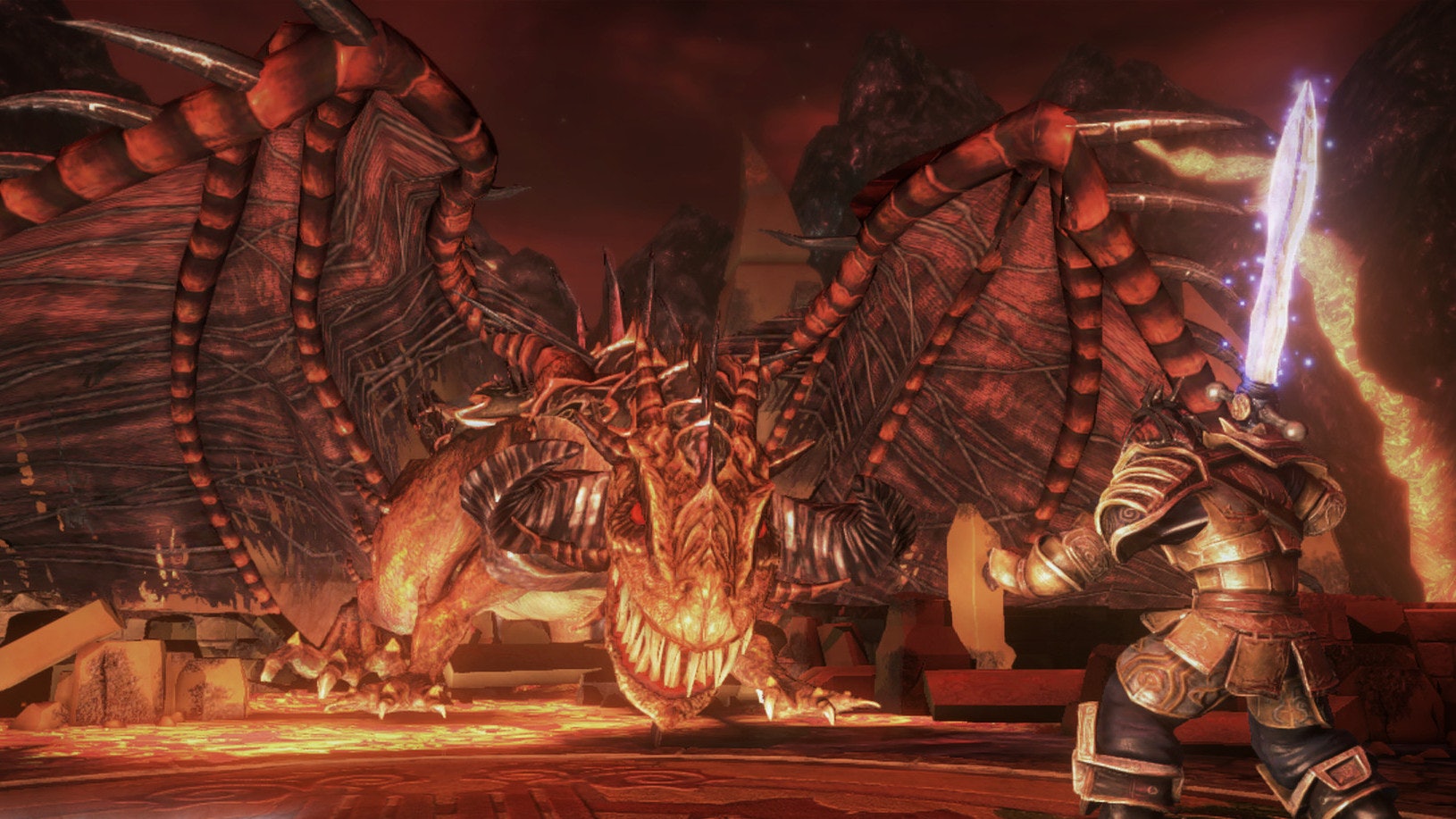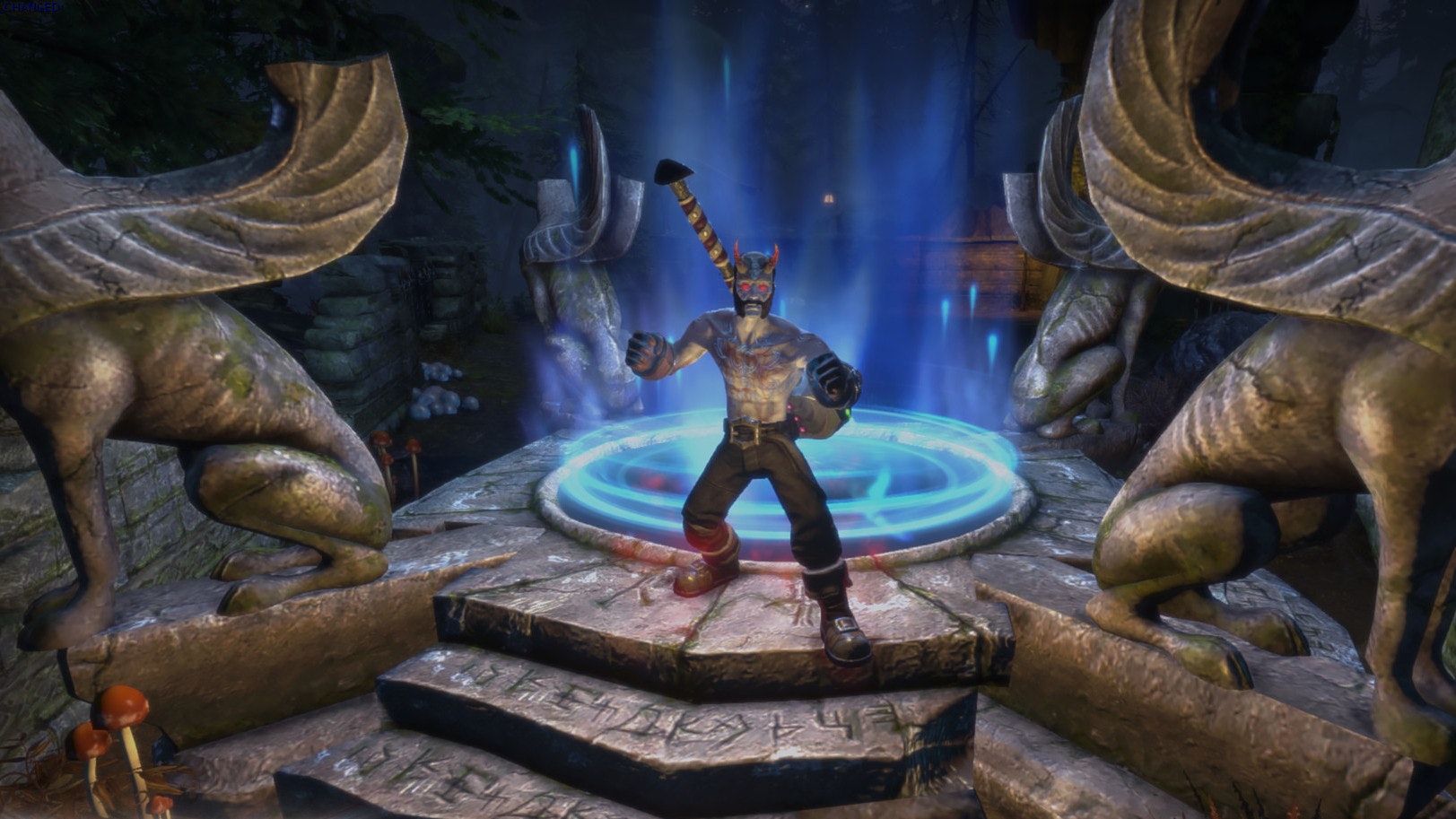
Do whatever you want and the world will react. That’s the pitch of so many video games, at their core, whether the reaction means you gain more power for leveling up, a character feels differently about you because of your words, or a field of crops grows after you planted it. What changes is how much a game makes space for you to make your own decisions, and how much it pushes back in return. Twenty years ago, one game promised a world so real that playing it would feel like living another life. It didn’t come close, but it set a precedent for others to follow and founded a beloved series, nonetheless.
When Fable launched on the original Xbox on September 14, 2004, it came after years of unbelievable hype. That’s “unbelievable” in the sense of extraordinary, and in the sense of impossible to take seriously. Lead designer Peter Molyneux famously declared “it’s gonna be the best game ever,” along with plenty of equally outrageous proclamations, which built anticipation for the game to a frankly unattainable level. Fable would follow its protagonist from birth. Characters would hold grudges for their entire lives and come seeking revenge if you wronged them. You could sow an acorn as a child and watch it grow into an oak tree by the time the game ended.
None of that would come to pass. Molyneux, the co-founder of Lionhead Studios, already had a reputation for overselling the ambition of his games, like Black & White. But with Fable, the final game was missing so much of what had been promised that Molyneux publicly apologized for it, and his tendency to vastly overpromise is still one of the defining parts of his legacy today.
Fable was talked up as a game where you could do anything and the consequences would shape your story, down to the tiniest details. It turned out to be a fairly standard RPG instead, with a story that plays out the same way every time — a shallow story of revenge rather than a wholly original fantasy epic.
But that doesn’t mean Fable is a bad game. While its central campaign was nothing special and its much-hyped freedom was overblown, it’s still a game full of wild leaps that were incredibly impressive for its time. Fable included a morality system that’s based on extremely simplistic definitions of good and evil, but the way it plays out for your character is still something of a marvel. Play the hero and your character will literally glow, sprouting a halo if you achieve true paragon status. Take the evil route, and you’ll instead grow horns and look out at the world through glowing red eyes. Villagers even react to your appearance, singing the praises of your heroism or running in fear from word of your evil deeds. The same effect can be achieved through your choice of clothing or tattoos, representing an intricate system of approval that colors every interaction.

A few years later, Mass Effect would include its own equally limited morality system, but it got more attention for its wide variety of space romances. Plenty of games, from Dragon Age: Origins to Stardew Valley, would continue that flirty trend, all with the same limitation that only particular characters with scripted interactions could get involved with the hero. Fable included its own version of romance that was far more open-ended, albeit considerably more limited. In Fable, you can chat up almost any NPC, and through a simplistic system of gift-giving, eventually marry them. They can even become jealous if you keep flirting with other villagers. Like so much in Fable, it’s not particularly deep, but it’s utterly original.
Underwhelming yet interesting might not be the greatest legacy, but that’s where Fable stands today. It pioneered or at least massively expanded a form of freedom in character expression that developers are still aiming to perfect. It may not have featured a fully simulated life or that much-discussed oak tree, but no one else has mastered it either. As disappointing as it was for some players, Fable still represents a sense of promise that video games can be more open-ended, more personal, and more experimental than most blockbuster games are even today.







